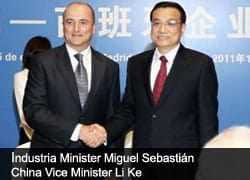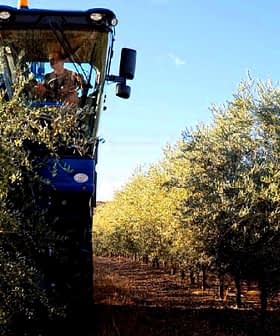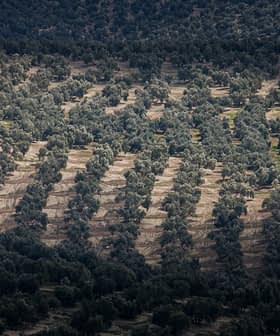By Charlie Higgins | Reporting from Buenos Aires
This week Spain’s largest olive oil producer Hojiblanca reached an agreement with Wilmar Iberica, a Chinese multinational based in Singapore, to supply the company with 3,000 tons of extra virgin olive oil.
This marks a major breakthrough for the Andalusia-based company, which has struggled to crack into the Asian market. César Ruesgas, Hojiblanca’s sales VP, told Europa Press, “We’ve been fighting for years in that market and have worked with the main distribution and production companies in China, but we were missing this.” Ruesgas added that he was “very happy” with the outcome.
 The one-year contract initially requires Hojiblanca to send the oil in bulk to be bottled in Singapore. However Ruesgas told Europa Press, “the idea is to keep growing and in the future bottle the oil in Andalusia. We want to establish a long-term relationship.”
The one-year contract initially requires Hojiblanca to send the oil in bulk to be bottled in Singapore. However Ruesgas told Europa Press, “the idea is to keep growing and in the future bottle the oil in Andalusia. We want to establish a long-term relationship.”
The fact that Wilmar Iberica distributes its products to more than 50 countries and is Asia’s leading agribusiness group only sweetens the deal. The company has over 80,000 employees and operates in over 20 countries across four continents.
Hojiblanca expects to generate between six and seven million euros through the new agreement.
Roughly 50 per cent of all olive oil consumed in China is of Spanish origin, and Hojiblanca is the top brand. The company already controls an estimated 12.5 percent of China’s entire olive oil market, exporting a total of 2,500 tons to the Asian giant annually. This new agreement will push Hojiblanca’s market share up to 20 per cent.
The deal, which will go into effect at the end of the month, is part of a larger set of economic agreements signed by Spanish prime minister José Luis Rodríguez Zapatero and China’s executive vice-premier Li Keqiang. China has agreed to buy a range of Spanish exports, including $260,000 of ham, $9 million of olive oil and $6 million of wine. The multibillion-dollar investment should boost the EU nation’s beleaguered finances.
Chinese consumption of olive oil has increased in recent years, particularly in major cities like Beijing and Shanghai where 90 per cent of the country’s imported oils are sold. Currently the nation imports 60,000 tons of olive oil a year from countries like Spain, Greece, Italy and Syria. Public interest in the so-called “green gold” has also grown. In 2011 China will host its seventh international olive oil exhibition in Shanghai.
.
.
Sources:
La Voz Libre: Hojiblanca suministrará 3.000 toneladas de aceite a una multinacional de Singapur http://www.lavozlibre.com/noticias/ampliar/176144/-hojiblanca-suministrara-3000-toneladas-de-aceite-a-una-multinacional-de-singapur
Libertad Balear: España y China potencian su relación en materia energética y en la promoción de inversiones exteriores http://www.libertadbalear.com/?p=240658
The Guardian: China to make multimillion pound investment in beleaguered Spain http://www.guardian.co.uk/business/2011/jan/05/china-investment-spain-bonds
Olive Line: China Flavors Its Market With Spanish Olive Oil http://www.olive-line.com/company/eng_news.php/show/111/china-flavours-its-market-with-spanish-olive-oil/
The Source: Chinese Official Goes to Save Spain, Buys Ham http://blogs.wsj.com/source/2011/01/05/chinese-official-goes-to-save-spain-buys-ham/








